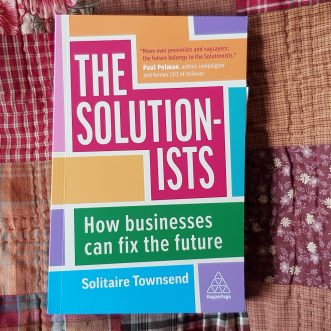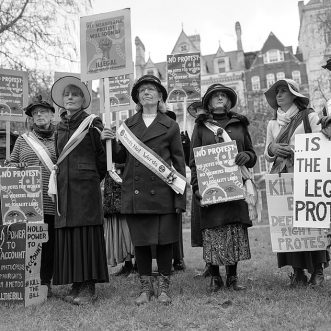May 22, 2023
This weekend my husband and I crossed another thing off our ‘to-visit’ list. We went to Canning Town and had a bit of a wander. Steve was looking for where the Bridgehouse used to be (a pub he used to visit for live music in the 70s) as well as the housing development site he worked on as a student in the late 80’s. The pub is long gone, but the housing is looking nice, low-rise, semis and terraces with neighbourly gardens, set on the edge of the park that replaced the old victorian streets.
While we were there we took a look at the shops in Barking Road, then down to City Island, a brand new development nestled in a loop of the river Lea.
What struck me was the contrast between the two. Barking Road is scruffy, some might say run-down, but lively and full of little independent shops (including a Portuguese shop and cafe that made its own pasteis de nata) and some impressive former local authority buildings. City Island is brand new, high-rise, colourful, but samey.
And strangely dead.
A pedestrianised area goes through it, and there are shops, restaurants, a yoga studio, nursery and gym, with typical ‘city’ planting.
The space looks public, but isn’t.
The shops and restaurants are almost anonymous, the only branding the London City Island E14 logo. The windows are dark, so you can’t see in, or tell whether they are open. It’s a sunny lunchtime, but nobody’s around.
There are green spaces, but nowhere to sit in them, and certainly nowhere to play. The last thing the landlord wants is to leave money on the table, and it shows. Like a theme park, every experience is predetermined, everything is ‘provided’, but only at a cost.
“They’re just warehouses for people,” my husband said, “you’re only really meant to sleep in them, handy for your job in the city. They’re not for living in.”
I’ve noticed the same about a lot of new places in London – Canary Wharf, Canada Water, Woolwich Arsenal, the South Bank, Elephant Park, Deptford.
The marketing literature likes to call these places, ‘Vibrant‘.
Hmmm.
Pretty bleak, I’d call them.
I know where I’d rather live.









